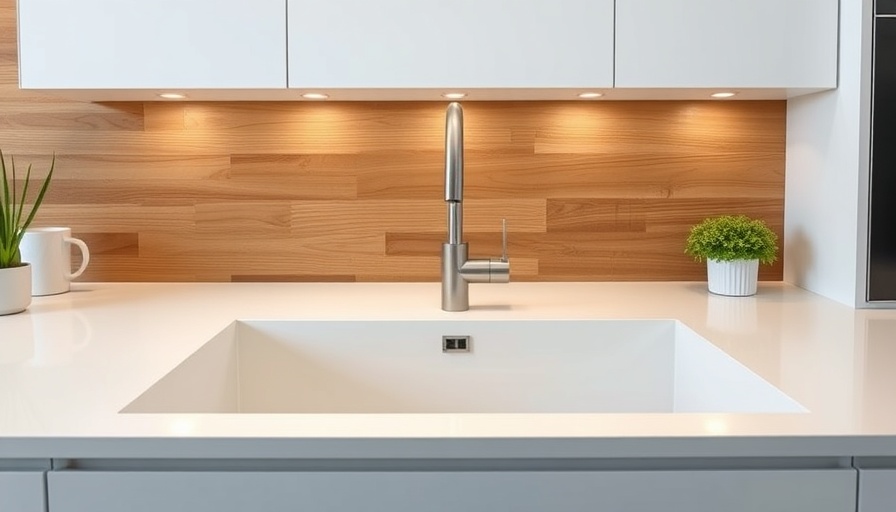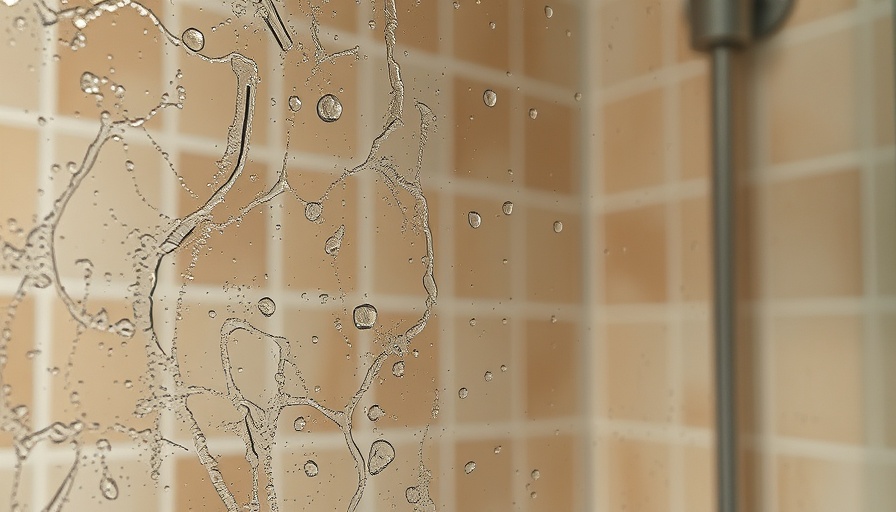
Reclaiming the Beauty of Your Corian Sink
Corian sinks are renowned for their durability and aesthetic appeal. Despite their non-porous nature, these stylish features in your home can still fall victim to everyday stains from food, hard water, cooking oils, and even rust. Thankfully, with the right cleaning techniques, you can restore your sink to its original lustrous state.
Understanding Corian: Why It Matters
Corian is not just a brand name; it represents a solid surface material crafted from a blend of acrylic polymer and alumina trihydrate. This unique composition provides not only resistance to stains but also eliminates bacterial growth, making it a favored choice for kitchens in both residential and commercial settings.
The Usual Suspects: What Causes Stains in Corian?
Stains can arise from various sources:
- Food and Drink: Items like coffee, tea, red wine, and various food dyes can leave unsightly marks unless promptly addressed.
- Hard Water: Especially in regions with high mineral content, hard water can create a white, chalky build-up over time.
- Cooking Oils: Residues from oils and grease attract dirt, leading to a dingy appearance.
- Metal Rust: Rust from metal pots and pans can cause unsightly marks, particularly if pooled water surrounds them.
Essential Supplies for Cleaning
To start fresh, gather these items—most are staples in any home:
- Mild dish soap
- Baking soda
- White vinegar
- Non-abrasive sponge or cloth
- Soft-bristle brush
- Spray bottle
- Non-abrasive household cleaner (optional)
Step-by-Step Guide: How to Clean a Stained Corian Sink
Follow these thorough yet straightforward steps to begin revitalizing your Corian sink:
- Start with Gentle Cleaning: Begin the cleaning process by filling your sink with warm water mixed with a few drops of mild dish soap. This simple action removes loose debris and starts breaking down initial stains.
- Utilize Baking Soda Paste: For those stubborn spots, create a paste using baking soda and water. Apply it to the stain and let it sit for 5-10 minutes before gently scrubbing with a non-abrasive sponge.
- Vinegar for Hard Water Stains: Hard water stains can be tackled with white vinegar. Spray it on the affected areas and let it sit for about 10 minutes to dissolve mineral deposits.
- Non-Abrasive Cleaner: If stains persist, consider a non-abrasive cleaner specifically designed for solid surfaces. Always ensure the cleaner is safe for Corian.
Long-Term Care Tips to Maintain Your Corian Sink
To keep your sink looking its best, here are some ongoing maintenance tips:
- Wipe Regularly: Make it a habit to wipe down your sink daily with a soft cloth to prevent stains from setting.
- Avoid Harsh Chemicals: Stay away from strong abrasive cleaners that could damage the finish.
- Promptly Clean Up Spills: The sooner you clean up spills, particularly from staining substances, the easier they will be to tackle.
When to Call in Professional Help
Sometimes, despite your best efforts, some stains may seem unyielding. In cases like these, it might be wise to consider professional cleaning services. They possess tools and expertise that can restore your sink effectively, saving you time and labor.
Making the Most of Your Corian Experience
Your Corian sink is more than just a functional item in your kitchen; it’s a centerpiece that enhances your home’s aesthetic. By implementing these cleaning techniques and maintenance tips, you’ll not only extend the life of your sink but also retain the beauty that drew you to it in the first place.
In Conclusion
Cleaning a stained Corian sink may seem daunting at first, but with a bit of knowledge and the right tools, you can revitalize its look effortlessly. Embrace proactive maintenance, and when in doubt, seek professional assistance to restore your sink's pristine charm.
Book online with a professional cleaning service today and take the first step towards a spotless kitchen.
 Add Row
Add Row  Add
Add 



Write A Comment